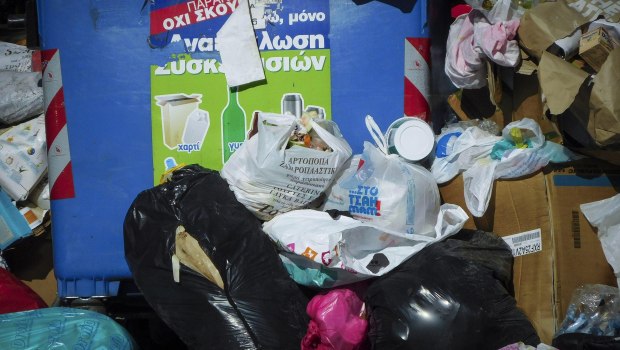Meeting in Achaia on smallpox in sheep and goats – What was decided
Source: ProtoThema English
Coordination of actions to address the increased outbreaks of pox in sheep and goats in Western Greece, particularly in Achaia and Aitroacarnania, was the subject of a wide-ranging meeting held by the Secretary General for Rural Development and Food, Spyros Protopsaltis, at the office of the regional governor of Western Greece, Nektarios Farmakis.
“We are strictly implementing the measures: disinfection stations all day, strict biosecurity, rapid procedures in infected feedlots, proper feed managemen,t and zero tolerance to illegal vaccines. Compensation will be given to those who comply with the rules,” Protopsaltis said in a statement, adding, “We are one step away from tighter restrictive measures – even a temporary lockdown of movements of animals, fee,d and equipment – but our aim is to avoid it. I urge all livestock producers to follow the guidelines closely, and with discipline and a concerted effor,t we will keep our farms safe and our production upright.”
For his part, Andreas Filias, the deputy head of Rural Development, noted that “the smallpox problem in Western Greece will be overcome with effective measures and cooperation of farmers with the competent authorities. Our goal is to protect the livestock industry in the region will be safeguarded, protecting both the animals and the future of the producers,” adding that “the implementation of the health protocols strengthen the confidence to finally overcome the problem, saving valuable production and the viability of the sector.”
According to a statement from the Ministry of Agriculture, the following actions were agreed upon during the meeting:
– Intensification of controls and strict biosecurity measures in all farms, with continuous information from local veterinary services.
– Fumigation stations in full operation.
– Correct management of feed stocks in contaminated farms by feed supervisors (immediate recording, photographing, freezing, record keeping).
– Rapid killing and destruction of infected herds within 72 hours of a positive laboratory result (and in any case up to 4 days).
– New round of information on biosecurity measures, with priority given to affected areas.
– Illegal vaccines: any case of illegal import, circulation, and use of unauthorized vaccines is immediately referred to the prosecution authorities.
– Compensation: the framework is strictly applied, which provides that no compensation is paid to farms that are not registered in the official registers/do not have a holding code, do not have an up-to-date register, have not carried out the required inventory, have animals without proper identification, or do not apply biosecurity measures.
Finally, it was agreed to accelerate legal compensation for those who qualify.
Ask me anything
Explore related questions
The original article: belongs to ProtoThema English .



